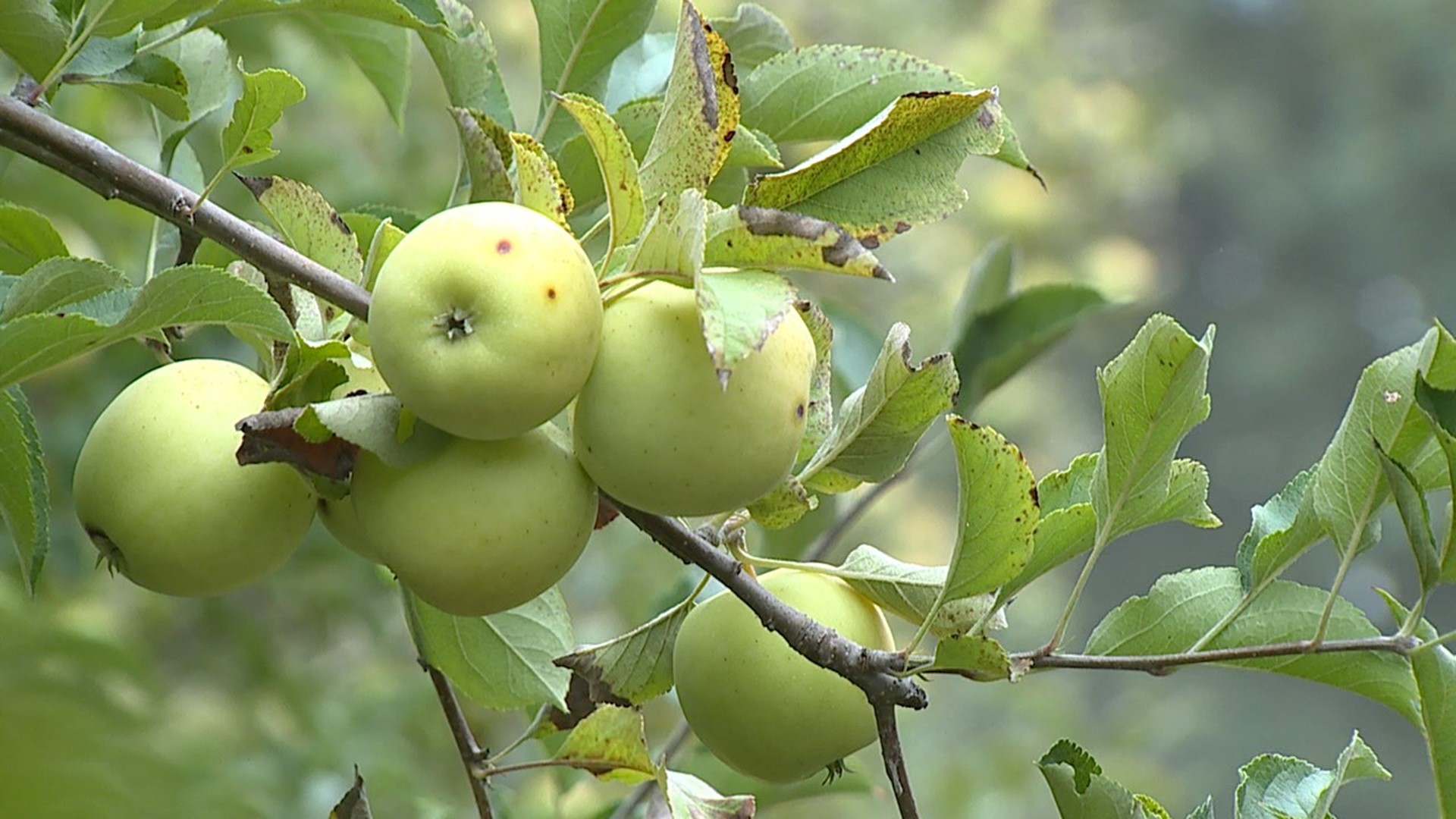LONG GROVE, Iowa — The last time it rained in Long Grove, Iowa was Aug. 15, and even then the area only received 0.15 of an inch.
Despite the lack of recent rainfall, the area of Scott County isn't falling below its average summer precipitation. Between June 1 and Aug. 31, Long Grove received 14 inches of rain. However, that is lower than last summer when it received 20.15 inches.
However, that rainfall has been inconsistent. Combine that with this summer's stretches of extreme heat, and some apple trees are feeling the impact.
"They really need a lot of moisture to get good fruit quality and temperatures that are 60s and 70s," John Romanick, orchardist and owner of BridgeHouse Cider, said. "They love cool temperatures. Apple trees can survive in 80s, but above that, like 90s, they really do not like that. The fruit quality is a lot poorer and it gets a lot smaller if you have these really high temperatures."
He grows 36 different apple varieties and uses them to make hard cider. Starting in the spring, the apple trees need at least 15 gallons of water per week.
"We have irrigation, thankfully," Romanick said. "We'll let this run for six hours a day."
Last year, he said they hardly used the irrigation system.
"This has been the worst year of all four years (we've grown)," he said.
Some of the apple varieties are doing worse than others. For example, the Dabinett apple tree, an English cider apple, is not taking well to the heat and dry conditions. It's only grown to about half of its usual size. Others, like the Enterprise apple tree, are growing just fine.
"They look really good," Romanick said.
He said the heat is also causing more apples to fall off the trees earlier.
However, he's not concerned about the impact on his hard cider production. BridgeHouse Cider produces a few hundred gallons of juice from its orchards but usually buys more from other Iowa producers. Those smaller apples will bring a different taste to this year's cider, too.
"The amount of fruit is less," he said. "Though the real small fruit and the small amount of water makes the fruit more intense. So the quality of the cider is actually probably going to be a little bit better because of the intensity of the sugar, even though we'll have less of it."
October is peak harvest season at BridgeHouse. Romanick wants to let the apples hang on the trees as long as possible to get as much sugar and ripeness as possible. He hopes for a little more rain and cooler temperatures between now and then.
"The summer is pretty much over and they're pretty much where they're gonna be," Romanick said. "Maybe a little more size in the next month is what we would get."

